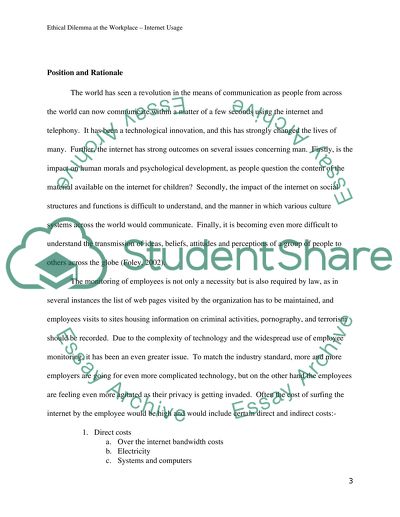Cite this document
(The Issue of Internet Usage and Employee Monitoring at the Workplace: Research Paper, n.d.)
The Issue of Internet Usage and Employee Monitoring at the Workplace: Research Paper. Retrieved from https://studentshare.org/ethics/1587869-ethicsframeworks-and-decisions
The Issue of Internet Usage and Employee Monitoring at the Workplace: Research Paper. Retrieved from https://studentshare.org/ethics/1587869-ethicsframeworks-and-decisions
(The Issue of Internet Usage and Employee Monitoring at the Workplace: Research Paper)
The Issue of Internet Usage and Employee Monitoring at the Workplace: Research Paper. https://studentshare.org/ethics/1587869-ethicsframeworks-and-decisions.
The Issue of Internet Usage and Employee Monitoring at the Workplace: Research Paper. https://studentshare.org/ethics/1587869-ethicsframeworks-and-decisions.
“The Issue of Internet Usage and Employee Monitoring at the Workplace: Research Paper”, n.d. https://studentshare.org/ethics/1587869-ethicsframeworks-and-decisions.


